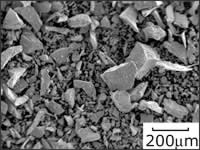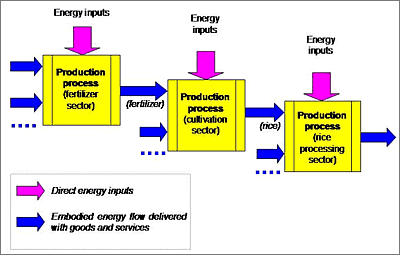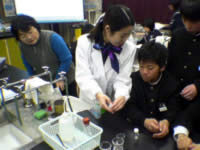In the laboratory of “Engineering for Social Systems”, we research on the effective use of energy and resources and analyze the evaluation systems in order to build a sustainable social system for the earth and global environment. The main focus of our research is to improve resource productivity to provide a high quality life with as less resources (energy, minerals, land, etc.) as possible.
Approach from “Materials Science” field
We research on the effective and environment-friendly use of the resources from a viewpoint of materials science, based on both “the development of functional materials and new material (eco-material)” and “the development of a new process (eco-process)”.
- High-performance photocatalysis materials using Titanium oxide, etc.
- Nitrogen storage alloys aiming at highly effective energy use.
- High-performance new material and processes with use of magnetic field.
- Carbon dioxide fixation process using solar energy and iron oxides.
- Material synthetic process using repeated press-rolling and ball-milling methods

Approach from “Social analysis and Evaluation”
In this approach, we evaluate environmental effects of products, processes and systems, both existing and new, by employing the LCA method, the input-output analysis, etc., to seek for harmony with the earth environment.
- Developing an evaluation index for environmental burden including the recycling process.
- Evaluation of energy productivity by input-output analysis.
- Reduction of carbon dioxide exhaust by a modal shift in Kyoto city.
- Evaluation of influences of the nuclear accident using the Hedonic function on land prices.

Approach from “Education”
We focus on evaluating a roll of energy-environmental education and its significance for our future society.
- Research on the energy-environmental education based on questionnaire and practice.




